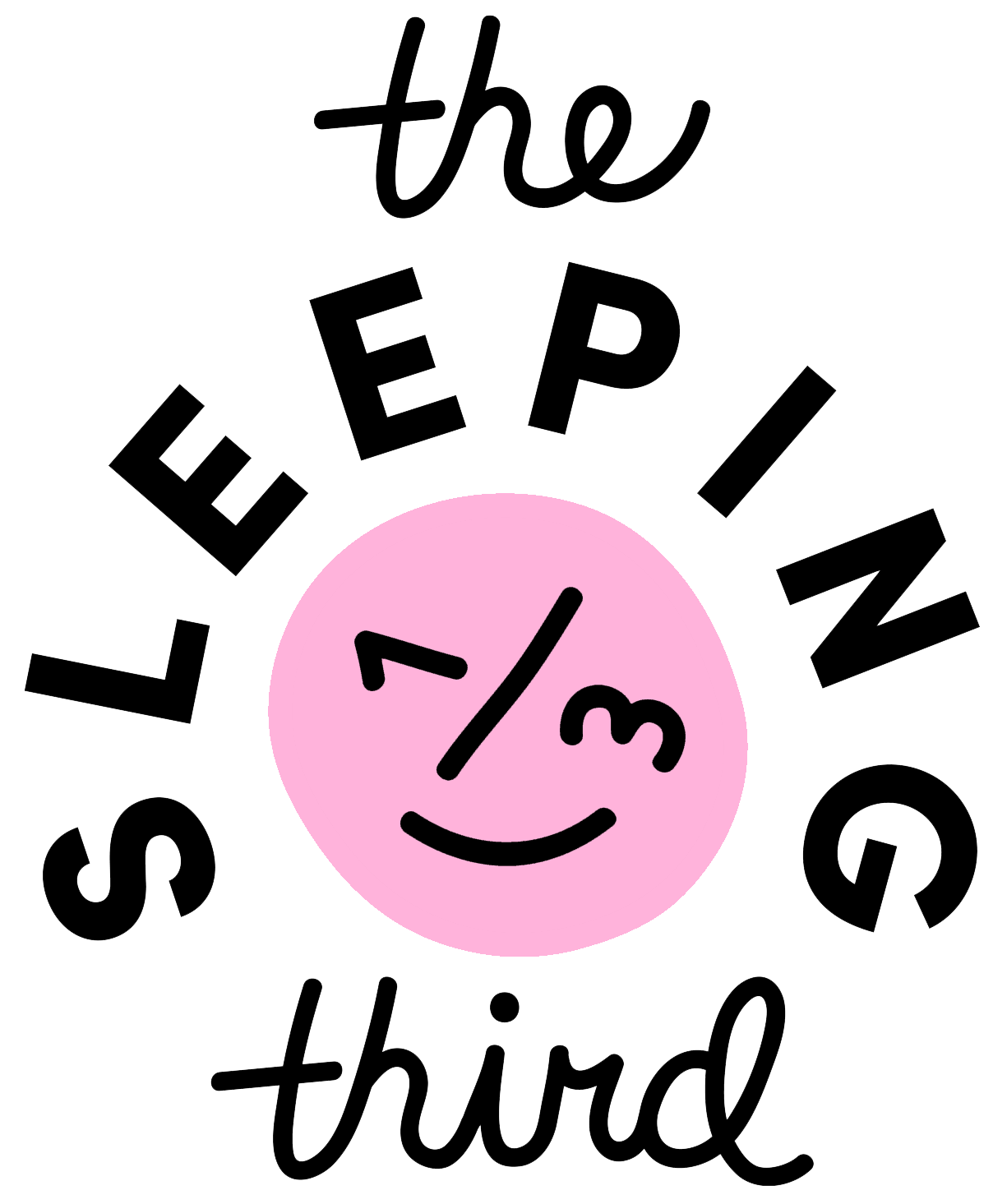I get so many questions! How to get better sleep, what do dreams mean, is lucid dreaming dangerous… and everything in between. Contact me if you have more questions about any of these topics or my approach.
On Sleep
Why does getting good steep matter?
For so many incredible, fantastic reasons! It’s great for your mental health, physical health, and emotional health. It makes you better at the skills you’re practicing, enhances your memory, makes you more productive, creative, and better to be around. For me personally, it’s about being smarter, brighter, and unlocking the world of my dreams!
There are too many studies to cite, but you can start with The National Sleep Foundation and my personal favorite, Matthew Walker’s, Why We Sleep. It ought to be mandatory! The audiobook is excellent.
How many hours of sleep do I need?
According to the National Sleep Foundation, adults need 7-9 hours of sleep.
How much sleep do you get?
To get really good at dreaming and lucid dreaming, you need more sleep. Given my enormous focus on and fascination with dream states (lucid dreams, non-lucid dreams, hypnagogic states between waking and sleeping), my goal is to get 9 hours of sleep each night. On Sunday mornings, I like to sleep even longer - up to 10 hours - to take advantage of prolonged REM periods.
How can I fall asleep faster and stay asleep?
There are many resources for you, do not despair! Start with The National Sleep Foundation to get expert advice.
What can I do to help with my insomnia?
Always seek medical advice for sleep disorders, including insomnia. Find a specialist in your area and use a Cognitive Behavioral Therapy tool to help you. I can't give medical advice, but when I can't sleep, I like to get out of bed and meditate or draw under soft light. It doesn't take long to feel sleepy again. I like to use my restlessness to get into a dreamy state of mind. Observing hypnagogic imagery (i.e., the colors and shapes in your vision in between waking and sleep), might even lead to some exciting dream experiences.
On Dream
Why do we dream? Do dreams mean anything?
Cultures around the world for centuries have had different relationships with dreams - relationships that modern society has since lost. But sleep researchers are getting closer. There are many theories on why we dream and what role they play, from preparing for threats to processing emotion… but honestly, there isn’t a definitive answer.
For me, dreams are an incredible source of wisdom, fun, and self-awareness. They give me a sense of whimsy, creativity, and understanding of my self and the world. I seem to work through things in dream and find healing in some of my issues.
I have no idea what the wacky objects are, or what the ridiculous situations mean, but I am convinced that there is a pattern in there somewhere. In any case, I'm better at life as a result of working with them so closely.
Why are you interested in dreaming / how did you get into it?
Like many of those interested in dreaming, it started in childhood. I had an early fascination with dreams long before I knew what they were. Spontaneous lucid dreams came every now and again that brought an amazing sense of wonder to life at night. Furthermore, I had a happy relationship with my dreams as a kid. I rarely suffered from enduring nightmares and took great joy in the imagination.
Then came high school, college, my overworked 20s, and my calmer 30s. Dreams seemed to have vanished for me, but I remained curious. Every few years, I’d try to remember, but as soon as I’d put paper by the bedside, my memory shut off like some cruel joke.
In 2018, I read an article on supplements to enhance the vividness of dreams, and my passion flared up again. I tried Galantamine a few times with excellent results. (Consult your doctor if you have an interest in supplements). My goal was to actively remember record dreams for 100 days. I made the ultimate dream spreadsheet (that’s how I like to dream journal) studied, learned the practices and developed my skills to a point where I recall about 3-6 a night and have lucid dreams 2-5 a week. I started from zero.
Every day my dreams surprise me. I love it. Since I started, I’ve definitely seen a change in life. I am happier, more rested, infinitely more creative, and can handle life challenges much better than before. And of course, I have so much wild dream content and data that I adore.
What do you do with all of your dreams?
I love looking at all of the data and trends that my spreadsheet gives me. Because I track 85 different characteristics, I can see patterns emerge. I like to study how often I dream about specific people, places, and things, and learn how those things might impact my day-to-day.
As an infinitely curious and creative person, I also like to use my dreams as my ultimate source of inspiration. Whether it be creating short stories,
Dreaming can also be quite cathartic and revealing. I go back to dreams that have had deeper meaning or connect to my challenges in life to try and work through them. If I am suffering in life, I look to my dreams to see what they may reveal - including nightmares.
I also love to rehearse old dreams that felt particularly compelling so I can try going back into in later. I’m still working on that!
Why can't I remember my dreams?
When I first started, I didn't remember my dreams with any regularity. I don't know why we seem to naturally forget our dreams, but I will tell you this - if you're not trying, you won't remember! We all spontaneously remember our dreams from time to time, but you need to practice to make perfect. Merely talking about dreaming and thinking about dreaming will put the wheels in motion.
Can you interpret my dream?
Dream interpretation is up to the dreamer! Don’t buy into those dream dictionaries that tell you what a horse means. A horse might have a particular and unique meaning to you. I can’t interpret your dream, but I can encourage you to look at the core details of the dream. Things like the emotional quality or how you felt about it. There’s a lot of intuition in dreams, you probably already know what it means for you. And other times, it’s just wacky.
On Lucid Dreams
What is lucid dreaming?
Lucid dreaming is an amazing state of awareness in which you know that you are dreaming while you are in a dream. Nearly everyone is capable of it with a little practice.
In the 1970s, both Keith Hearne and Stephen LeBarge had scientifically proven that lucid dreaming was a real phenomenon in a lab environment. Lucid dreamers were able to signal back to the technicians that they knew they were dreaming through a series of pre-determined eye movements.
There are endless ways to learn more about lucid dreaming. You can start with my favorites resources and go much deeper from there.
What can you do in a lucid dream / what are the benefits?
The possibilities are endless! You can fly, speak with dream characters, connect with those you’ve lost, confront fears hiding behind those nightmares, indulge in fantasies, visit worlds of the imagination… just to name a tiny few. I’m working on a list of goals that I will share that run the gamut of basic fun times and extend into self awareness. In these bigger territories you can exploring healing and your most fulfilled self!
There is nothing quite like the joy that comes in having a lucid dream.
How often do you have lucid dreams?
With a lot of dedication and focused practice, I have about 2-4 lucid dreams and about 18-25 total dreams each week.
How long did it take you to have your first lucid dream?
It look me about 90 days with focused intent before I had my first non-spontaneous lucid dream. Like learning to play an instrument, I practiced with dedication daily and nightly. My first lucid dream that was intentional and not spontaneous was absolutely amazing! The time it takes you to have your first lucid dream as an individual will greatly depend on how much time you dedicate to it and practice to it, combined with your "natural" ability. Nearly everyone has the capacity to lucid dream, but far too many give up before they get off the ground.
What methods do use to have lucid dreams consistently?
Most nights, I practice a short version of WBTB or wake back to bed. I get up around 6, stay away for about 20 minutes, and intend to have lucid dreams while meditating on and visualizing my goals. I often count my breaths and watch the images of hypnagogia as long as I can in attempts to go into a lucid dream directly from being awake - otherwise know and a WILD or a waking induced lucid dream.
How can my lucid dreams last longer?
The quality of your lucid dreams will increase over time. Not all lucid dreams are the same! Your first dozen or so will likely be short since you'‘ll be so EXCITED that you wake yourself up. That’s ok! It happens to us all. With practice, your lucid dreams will become longer and you will have more ability to influence what happens.
There are techniques you can do to prolong your lucid dream experiences once you have a good degree of proficiency. Generally engaging the senses helps. Really observe the environment - see what you can see, listen to the sounds, smell things, or touch things. This often helps me stabilize and find clarity. I particularly like to kneel and touch the ground and intend the dream to stabilize by literally shouting, “stabilize!” into the air.
Rubbing your hands is another way to engage your senses that is often used by lucid dreamers and works for me from time to time. Stephen LaBerge, one of the most famous lucid dream researcher, discovered that spinning in a dream can prolong the experience or change the scene. Give it a try!
Will lucid dreaming disrupt my sleep?
If you are stressed about it, it will disrupt your sleep. For me, it’s not at all disruptive. I am already focused on getting 9+ hours of sleep, and I focus on getting great sleep first and foremost. Lucid practices should argument your lifestyle, not take away from it! My lucid dream practice has given me the best sleep of my life!
Is lucid dreaming dangerous?
Lucid dreaming is not at all dangerous! I’d say that those who are in a psychologically unsafe place in their lives should work with a trained therapist before trying lucid dreaming. The thing about dreams, is they often reveal inner parts of you that some people might not be willing to see.
I am scared of lucid dreaming, what if I have nightmares?
Having some hesitation is natural, lots of scary things can come up in dreams. Nightmares do happen - even to me. I love becoming lucid in the dark shadows because it gives me a chance to face something I’m dealing with. I’ve hugged monsters in lucid dreams, and they have transformed into amazing creatures - and in those dreams, I wake up feeling a difference.
I am struggling to have a lucid dream. What am I doing wrong?
Keep going! Lucid dreaming is a skill like any other. Don’t give up. Make sure you are actually doing the basics. Keep your dream journal, practice meditation. It took me 99 days to have my first natural lucid dream. You’ll get there, and the reward for your effort will be incredible.





